Health certificates for dogs are essential documents that play a crucial role in ensuring the health and safety of your canine companion. They provide a comprehensive overview of your dog’s health status, outlining vaccinations, tests, and examinations conducted by a qualified veterinarian.
These certificates serve as a vital tool for dog owners, providing peace of mind and facilitating responsible pet ownership.
From ensuring safe travel for your furry friend to participating in breeding programs, health certificates are indispensable for a variety of purposes. They are a testament to your dog’s good health and can help prevent the spread of contagious diseases, ensuring the well-being of your dog and others.
Introduction to Health Certificates for Dogs
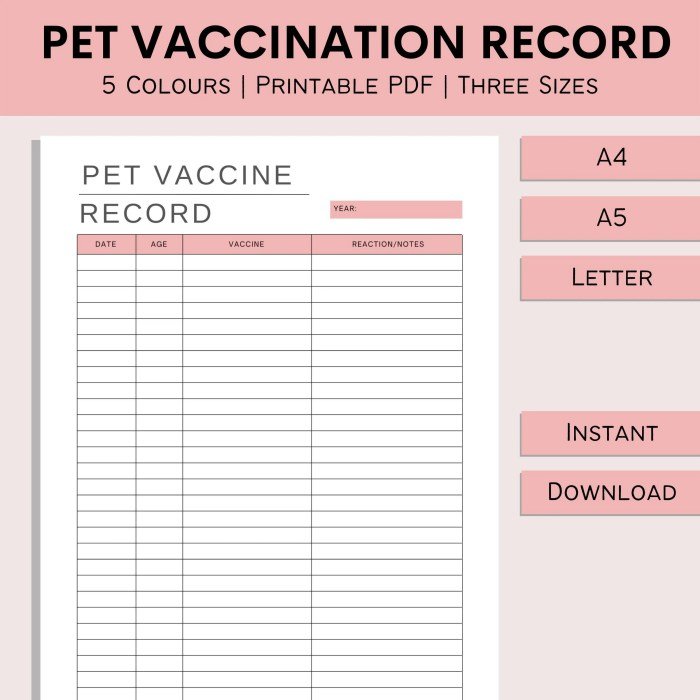
Health certificates are essential documents that play a crucial role in the well-being of dogs, particularly when it comes to travel, breeding, and participation in dog shows and competitions. These certificates serve as a valuable tool for both dog owners and veterinary professionals, providing vital information about a dog’s health status.
Purpose and Function of Health Certificates
Health certificates for dogs serve several essential purposes:
- Proof of Health Status:Health certificates document a dog’s overall health condition, confirming that they are free from contagious diseases and meet specific health standards. This information is particularly important for dogs traveling to other countries or participating in events where health requirements are enforced.
- Disease Prevention:By verifying a dog’s health status, health certificates contribute to the prevention of disease transmission, safeguarding both individual dogs and the broader canine population.
- Breeding and Genetics:Health certificates can provide valuable information about a dog’s genetic predisposition to certain diseases. This information is essential for responsible breeding practices, helping to minimize the risk of passing on genetic disorders to future generations.
- Legal Compliance:In many countries, health certificates are legally required for dogs entering or leaving the country. These certificates ensure that dogs meet the necessary health standards and prevent the spread of infectious diseases.
Types of Health Certificates for Dogs
Different types of health certificates are available for dogs, depending on their purpose and the specific requirements of the destination or event. Some common types include:
- General Health Certificate:This is a basic certificate that documents a dog’s overall health status, including vaccinations and parasite control. It is typically required for routine travel within a country.
- International Health Certificate:This certificate is required for dogs traveling internationally. It includes information about vaccinations, parasite control, and other health requirements specific to the destination country.
- Breeding Health Certificate:This certificate documents a dog’s health status, including genetic testing results, for breeding purposes. It ensures that the dog is free from genetic disorders and meets specific breeding standards.
- Show Health Certificate:This certificate confirms a dog’s health status and suitability for participation in dog shows and competitions. It typically includes information about vaccinations, parasite control, and other health requirements specific to the event.
Requirements and Procedures for Obtaining Health Certificates
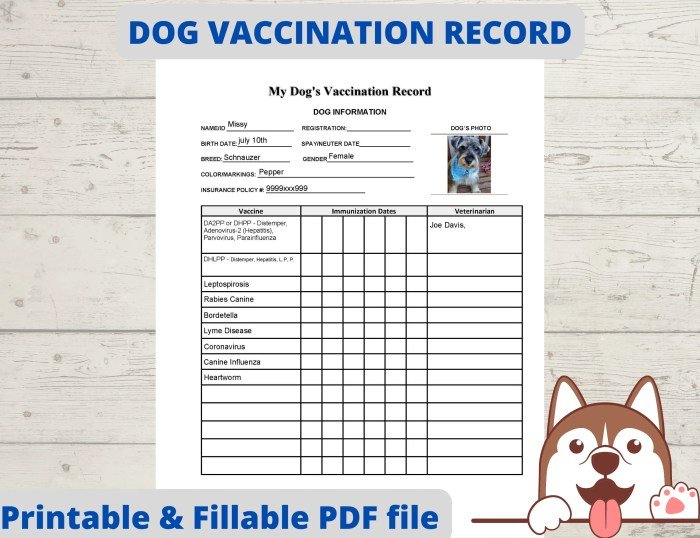
Obtaining a health certificate for your dog is a crucial step when traveling with your furry friend. It ensures that your dog is healthy and poses no risk of spreading diseases to other animals or humans in the destination country.
This document is usually required by airlines and government authorities in the destination country, and it verifies that your dog has met all the necessary health requirements.
Requirements for Obtaining Health Certificates
The specific requirements for obtaining a health certificate vary depending on the destination country and the airline you are traveling with. However, there are some general requirements that are common to most countries.
- Vaccinations:Your dog must be up-to-date on all required vaccinations. These vaccinations typically include rabies, distemper, adenovirus, parvovirus, and parainfluenza. The rabies vaccination is particularly important and is often required for entry into many countries. The vaccination must have been administered by a licensed veterinarian and should be recorded in your dog’s vaccination booklet.
- Tests:Depending on the destination country, your dog may need to undergo specific tests, such as a serological test for rabies or a fecal test for parasites. The required tests will be listed in the country’s import regulations. The tests must be conducted by a licensed veterinarian and the results must be included in the health certificate.
Health certificates for dogs are essential for travel and can be obtained from a veterinarian. While these certificates are typically focused on the animal’s health, it’s worth noting that Texas Health Presbyterian Hospital Dallas, a renowned medical facility , offers a range of services for humans, including comprehensive healthcare for families.
When it comes to your dog’s health certificate, make sure to contact your veterinarian well in advance of your travel plans.
- Examinations:Your dog will need to undergo a physical examination by a licensed veterinarian. This examination will assess your dog’s overall health and ensure that it is free of any signs of illness or disease. The veterinarian will also check your dog’s microchip, if applicable.
Health certificates for dogs are essential for travel and often include a physical examination. While these certificates focus on physical health, it’s important to consider the dog’s mental well-being too. A mental health status exam can help assess a dog’s emotional state and identify any potential behavioral issues.
This information can be valuable for breeders, owners, and even veterinarians, contributing to a dog’s overall health and well-being, which can ultimately be reflected in their health certificates.
Procedure for Obtaining a Health Certificate
The process for obtaining a health certificate from a veterinarian typically involves the following steps:
- Contact your veterinarian:Begin by contacting your veterinarian and informing them of your travel plans. Provide them with the specific requirements for the destination country and the airline you are traveling with.
- Schedule an appointment:Schedule an appointment with your veterinarian for your dog’s health certificate. This appointment will include a physical examination, vaccinations (if needed), and any required tests.
- Complete the necessary paperwork:Your veterinarian will need to complete a health certificate form. This form will include information about your dog, its vaccination history, test results, and the date of the examination. Some airlines or countries may have specific forms that must be used.
- Receive your health certificate:Once your veterinarian has completed the health certificate form, they will issue it to you. The certificate will usually be valid for a specific period of time, so be sure to check the expiration date.
Timeline and Cost
The timeline and cost for obtaining a health certificate can vary depending on the specific requirements, the veterinarian’s fees, and the time it takes to complete the necessary tests. However, you can expect the process to take several weeks or even months, especially if your dog needs to undergo specific tests.
It is important to start the process early to ensure that you have enough time to meet all the requirements.
The cost of obtaining a health certificate can range from a few hundred dollars to over a thousand dollars, depending on the required tests and the veterinarian’s fees.
Types of Health Certificates and Their Uses: Health Certificates For Dogs
Health certificates for dogs are essential documents that verify the health status of a dog and ensure that it meets the requirements for travel, importation, or participation in certain activities. Different types of health certificates serve different purposes, each with specific requirements and uses.
Import/Export Certificates
Import/export certificates are required for dogs entering or leaving a country. They are issued by a veterinarian authorized by the importing or exporting country and typically include information about the dog’s breed, age, vaccination history, and health status. The specific requirements for import/export certificates vary depending on the country of origin and destination.
- For example, some countries may require dogs to be vaccinated against rabies, while others may have specific requirements for blood tests or other health assessments.
- The certificate must be issued within a certain timeframe before the dog’s arrival in the destination country.
Import/export certificates ensure that dogs are free from diseases that could pose a risk to the animal population of the destination country. They also help to prevent the spread of diseases across borders.
Travel Certificates
Travel certificates are required for dogs traveling within a country or region. They typically include information about the dog’s breed, age, vaccination history, and microchip identification. The specific requirements for travel certificates vary depending on the destination.
- For example, some airlines or train companies may require dogs to have a travel certificate, while others may only require a valid vaccination record.
- The certificate may also need to be endorsed by a veterinarian or an authorized government agency.
Travel certificates help to ensure that dogs are safe and healthy during travel and that they meet the requirements of the destination.
Health certificates for dogs are important for travel and can be obtained from your veterinarian. While you’re busy taking care of your furry friend’s paperwork, why not take some time for yourself? Check out a fitness center near me with childcare to get in a workout and let the kids play safely.
Once you’re back to feeling your best, you can focus on getting that health certificate for your dog and start planning your next adventure together.
Breeding Certificates
Breeding certificates are issued to dogs that are intended for breeding purposes. They typically include information about the dog’s breed, lineage, and health status. Breeding certificates are often required by kennel clubs or breed registries to ensure that dogs are eligible for breeding.
- Breeding certificates may also be required by insurance companies or breeders to provide proof of the dog’s lineage and health status.
- They can help to prevent the spread of genetic diseases and ensure that dogs are bred responsibly.
Breeding certificates help to maintain the purity of a breed and ensure that dogs are bred for their health and temperament.
Importance of Health Certificates for Traveling with Dogs
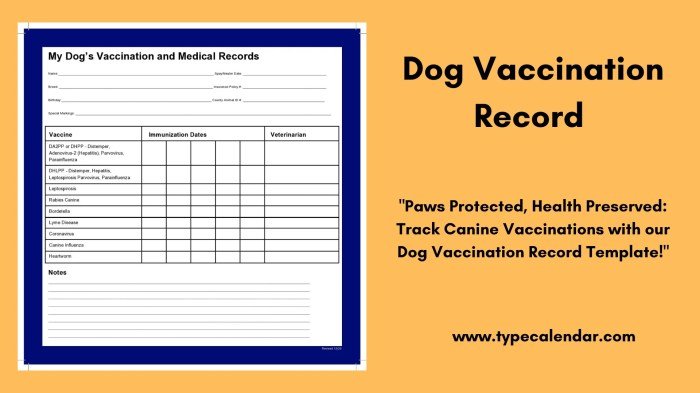
Health certificates play a crucial role in ensuring the safety and well-being of both dogs and humans during travel. These certificates serve as official documentation confirming a dog’s health status, preventing the spread of contagious diseases and protecting the health of the destination country’s animal population.
International Travel Requirements for Dogs
International travel with dogs often involves strict regulations and requirements that vary depending on the destination country. Health certificates are typically mandatory for international travel, ensuring that dogs are free from contagious diseases that could pose a risk to the local animal population.
- The health certificate must be issued by a licensed veterinarian within a specific timeframe before the travel date, usually within 10 days.
- It must include details about the dog’s vaccination history, particularly for rabies, as well as information about any other required vaccinations or treatments.
- The certificate must be translated into the language of the destination country, if necessary, and may require official authentication or apostille.
- Some countries may also require additional tests, such as blood tests for specific diseases, or a period of quarantine upon arrival.
Examples of Countries Requiring Health Certificates for Dog Entry
- The European Union (EU):The EU has implemented the “Pet Passport” system, which requires dogs to be microchipped, vaccinated against rabies, and have a health certificate issued by a licensed veterinarian. The certificate must be valid for at least 10 days before arrival in the EU.
- United States:The United States Department of Agriculture (USDA) requires dogs entering the country to have a health certificate issued by a licensed veterinarian within 10 days of arrival. The certificate must include information about the dog’s vaccinations, microchip, and any other required tests.
- Australia:Australia has strict quarantine regulations for dogs entering the country. Dogs must be microchipped, vaccinated against rabies, and have a health certificate issued by a licensed veterinarian. The certificate must be valid for 10 days before arrival and may require additional tests and a period of quarantine.
- Canada:Canada requires dogs entering the country to be microchipped, vaccinated against rabies, and have a health certificate issued by a licensed veterinarian. The certificate must be valid for 10 days before arrival and may require additional tests.
Common Health Issues and Tests Covered by Health Certificates
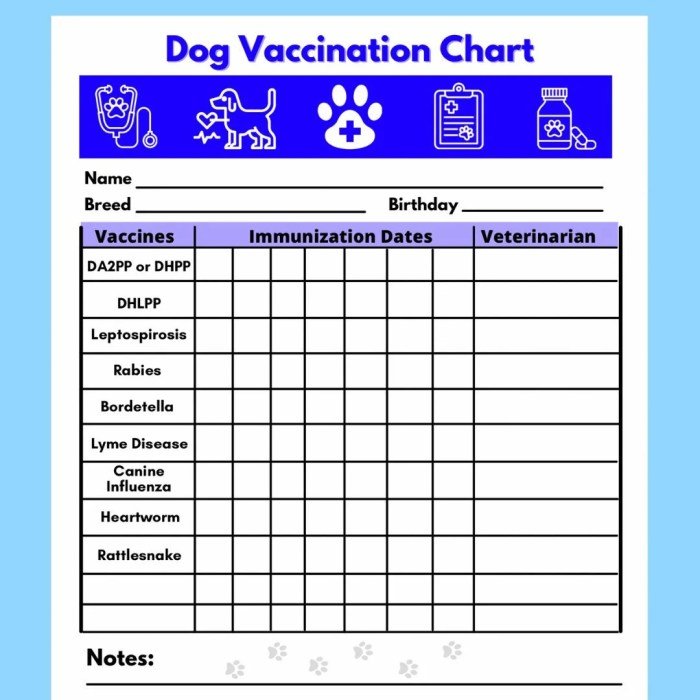
Dog health certificates are designed to ensure the well-being of dogs and prevent the spread of contagious diseases. They are often required for travel, competitions, and breeding purposes. These certificates typically include a comprehensive assessment of the dog’s health, encompassing a range of tests that identify common health issues.
Common Health Issues Screened for
Health certificates commonly screen for a variety of health issues, including:
- Infectious diseases:These include rabies, distemper, parvovirus, adenovirus, parainfluenza, leptospirosis, and kennel cough. These diseases can be highly contagious and potentially fatal, especially in young or immunocompromised dogs.
- Parasites:Internal parasites, such as roundworms, hookworms, and tapeworms, and external parasites, like fleas, ticks, and mites, can cause various health problems. Screening for these parasites helps prevent their spread and ensure the dog’s overall health.
- Genetic conditions:Some dog breeds are prone to specific genetic conditions, such as hip dysplasia, elbow dysplasia, patellar luxation, and eye disorders. Health certificates may include tests for these conditions to identify potential risks and ensure responsible breeding practices.
Types of Tests Required
Several types of tests may be conducted to obtain a health certificate, including:
- Blood tests:These tests can detect the presence of antibodies against specific diseases, indicating previous exposure or immunity. Blood tests can also assess overall health parameters, such as red blood cell count, white blood cell count, and blood chemistry levels.
- Fecal exams:Fecal exams are crucial for detecting internal parasites. A veterinarian examines a stool sample under a microscope to identify any parasitic eggs or larvae.
- Parasite screenings:This may involve examining the dog’s skin and fur for external parasites, such as fleas, ticks, and mites. A veterinarian may also perform a skin scraping to check for microscopic parasites.
- Physical examinations:A thorough physical examination is essential to assess the dog’s overall health, including its weight, temperature, heart and lung function, and musculoskeletal system.
Significance of Tests
The tests included in health certificates play a vital role in ensuring the health and safety of dogs:
- Disease prevention:Identifying and treating infectious diseases early can prevent their spread and protect other dogs and humans.
- Parasite control:Regular parasite screening and treatment help prevent infestations and associated health problems.
- Responsible breeding:Testing for genetic conditions helps breeders make informed decisions about breeding pairs, minimizing the risk of passing on these conditions to future generations.
- Safe travel:Health certificates ensure that dogs traveling to other countries or regions meet specific health requirements, preventing the introduction of diseases into new areas.
The Role of Veterinarians in Issuing Health Certificates
Veterinarians play a crucial role in ensuring the health and safety of dogs, especially when traveling internationally. They are responsible for issuing health certificates, which are essential documents that certify a dog’s health status and allow it to travel safely.
Veterinarians are qualified professionals who have undergone extensive training and education in animal health and medicine. They possess the knowledge and skills to accurately assess a dog’s health and determine if it is fit to travel.
Veterinarians’ Qualifications and Responsibilities, Health certificates for dogs
Veterinarians must meet specific qualifications and adhere to strict protocols to issue health certificates. These qualifications ensure that the certificates are accurate, reliable, and meet international standards.
- Licensed Veterinarians:Only licensed veterinarians, registered with their respective veterinary boards, are authorized to issue health certificates. This ensures that the veterinarian has met the required educational and practical training standards.
- Current Knowledge:Veterinarians must stay up-to-date on the latest health regulations and requirements for traveling with dogs. They should be familiar with the specific health certificates required by different countries and the procedures for obtaining them.
- Thorough Examination:Veterinarians must conduct a comprehensive physical examination of the dog to assess its overall health. This includes checking its vital signs, examining its body systems, and assessing its behavior.
- Required Tests:Depending on the destination country, veterinarians may be required to perform specific tests, such as rabies vaccination, blood tests, or parasite screening. They must ensure that the tests are conducted correctly and that the results are accurate.
- Documentation:Veterinarians are responsible for completing the health certificate accurately and legibly. They must include all the required information, such as the dog’s identification, vaccination history, and test results.
Assessing a Dog’s Health
The process of assessing a dog’s health involves a thorough examination and evaluation of its medical history.
- Physical Examination:Veterinarians perform a physical examination to assess the dog’s overall health. They check its temperature, heart rate, respiratory rate, and body weight. They also examine its eyes, ears, nose, mouth, skin, and lymph nodes for any signs of illness or disease.
- Medical History:Veterinarians review the dog’s medical history, including its vaccination records, previous illnesses, and any medications it is currently taking. This information helps them assess the dog’s overall health and identify any potential risks.
- Required Tests:Depending on the destination country, veterinarians may perform specific tests, such as rabies vaccination, blood tests, or parasite screening. These tests are crucial to ensure the dog’s health and prevent the spread of diseases.
Choosing a Reputable Veterinarian
Choosing a reputable veterinarian is crucial for obtaining an accurate and valid health certificate.
- Experience and Expertise:Look for a veterinarian with experience in issuing health certificates and knowledge of international travel requirements.
- Professional Reputation:Check the veterinarian’s credentials, licenses, and professional affiliations.
- Communication and Transparency:Choose a veterinarian who communicates clearly and transparently about the health certificate process, the required tests, and the associated costs.
Maintaining and Storing Health Certificates
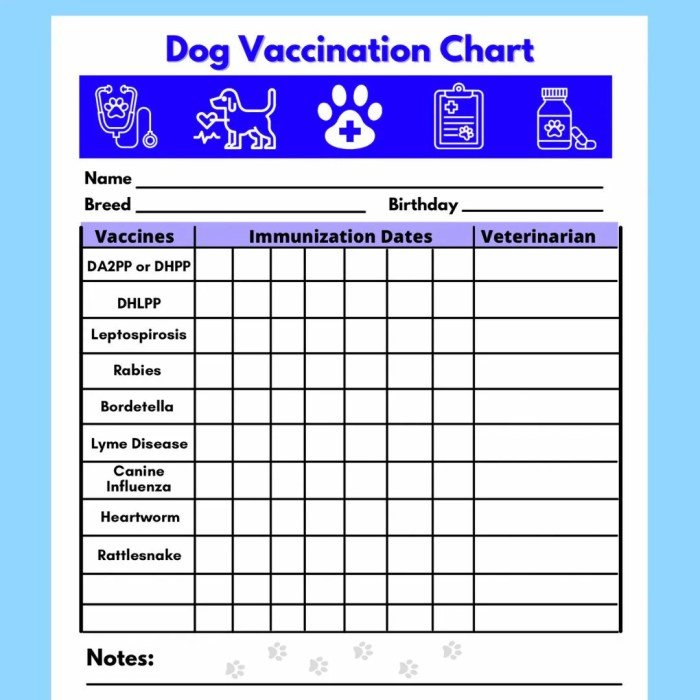
Maintaining and storing your dog’s health certificates properly is crucial for ensuring their safe and smooth travel. It’s essential to keep these documents organized and readily accessible, as they might be required at various checkpoints during your journey.
Importance of Organization and Accessibility
Keeping your dog’s health certificates organized and easily accessible is vital for several reasons. First, it ensures that you can present the necessary documents to authorities promptly, avoiding delays or complications during travel. Second, having all relevant documents in one place simplifies the process of verifying your dog’s health status.
Finally, organized storage prevents the risk of losing or misplacing important documents, which could have significant consequences.
Consequences of Losing or Misplacing Health Certificates
Losing or misplacing your dog’s health certificates can lead to various challenges, potentially impacting your travel plans.
- Travel Delays or Restrictions:Authorities may require you to provide proof of your dog’s health status, and without the necessary certificates, you may face delays or even be denied entry into certain countries or regions.
- Additional Costs and Procedures:In some cases, you may need to undergo additional testing or procedures to obtain replacement certificates, leading to increased costs and delays.
- Potential Quarantine:Without proper documentation, your dog might be subject to quarantine upon arrival, potentially leading to stress and additional expenses.
Future Trends and Developments in Dog Health Certificates
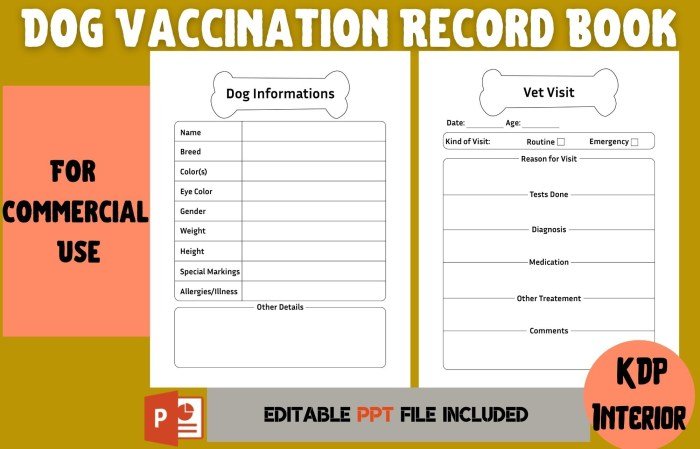
The field of dog health certificates is constantly evolving, driven by advancements in veterinary medicine, technology, and global travel trends. Emerging technologies and innovative approaches are reshaping how health certificates are issued, verified, and utilized, creating a more efficient and secure system for dog health and travel.
Digital Health Certificates and Blockchain Technology
Digital health certificates offer a secure and efficient alternative to traditional paper certificates. Blockchain technology, with its decentralized and immutable nature, provides a robust platform for storing and verifying dog health records.
Digital health certificates, leveraging blockchain technology, have the potential to revolutionize dog health documentation.
- Enhanced Security:Blockchain’s decentralized and tamper-proof nature ensures the integrity and authenticity of health certificates, reducing the risk of fraud and forgery.
- Streamlined Verification:Authorities and airlines can easily verify the validity of certificates through blockchain networks, simplifying the travel process for dog owners.
- Real-time Access:Dog owners can access their pet’s health records securely and conveniently, eliminating the need for physical copies.
Last Word

In conclusion, health certificates for dogs are a fundamental aspect of responsible pet ownership. They serve as a vital tool for ensuring the health and safety of your canine companion, facilitating travel, breeding, and participation in various activities. By understanding the importance and procedures involved in obtaining these certificates, dog owners can contribute to a healthier and safer environment for their furry friends and the community at large.
FAQ Resource
How often do I need to get a health certificate for my dog?
The frequency of obtaining a health certificate depends on the purpose and specific requirements. For travel, it may be valid for a specific period, while for breeding, it might need to be renewed annually.
What happens if my dog doesn’t meet the requirements for a health certificate?
If your dog fails to meet the requirements, your veterinarian may recommend further testing or treatment to address any underlying health issues. In some cases, your dog may not be eligible for a health certificate.
Can I get a health certificate for my dog online?
Health certificates are issued by licensed veterinarians and require a physical examination. Online certificates are not valid and should be avoided.